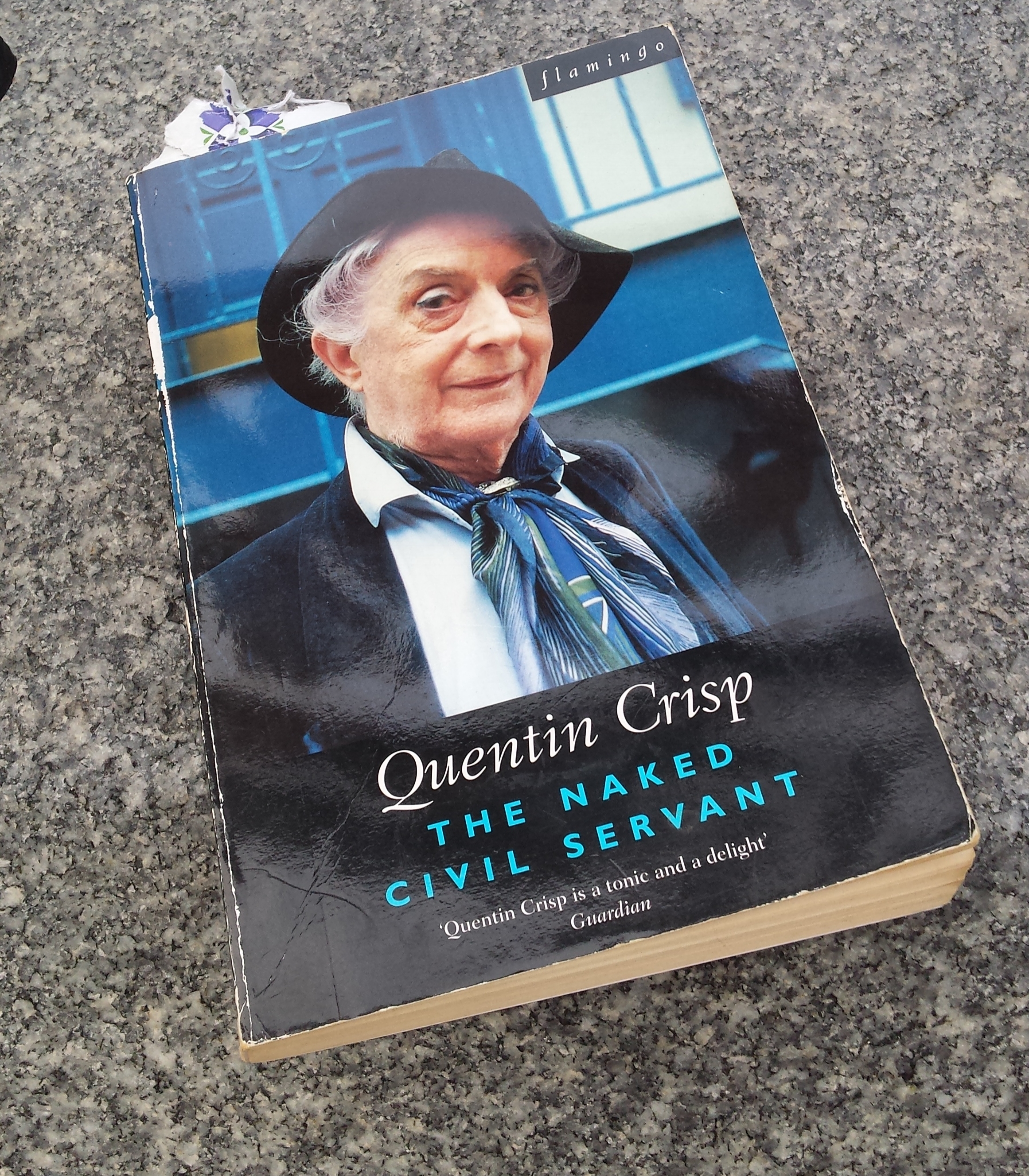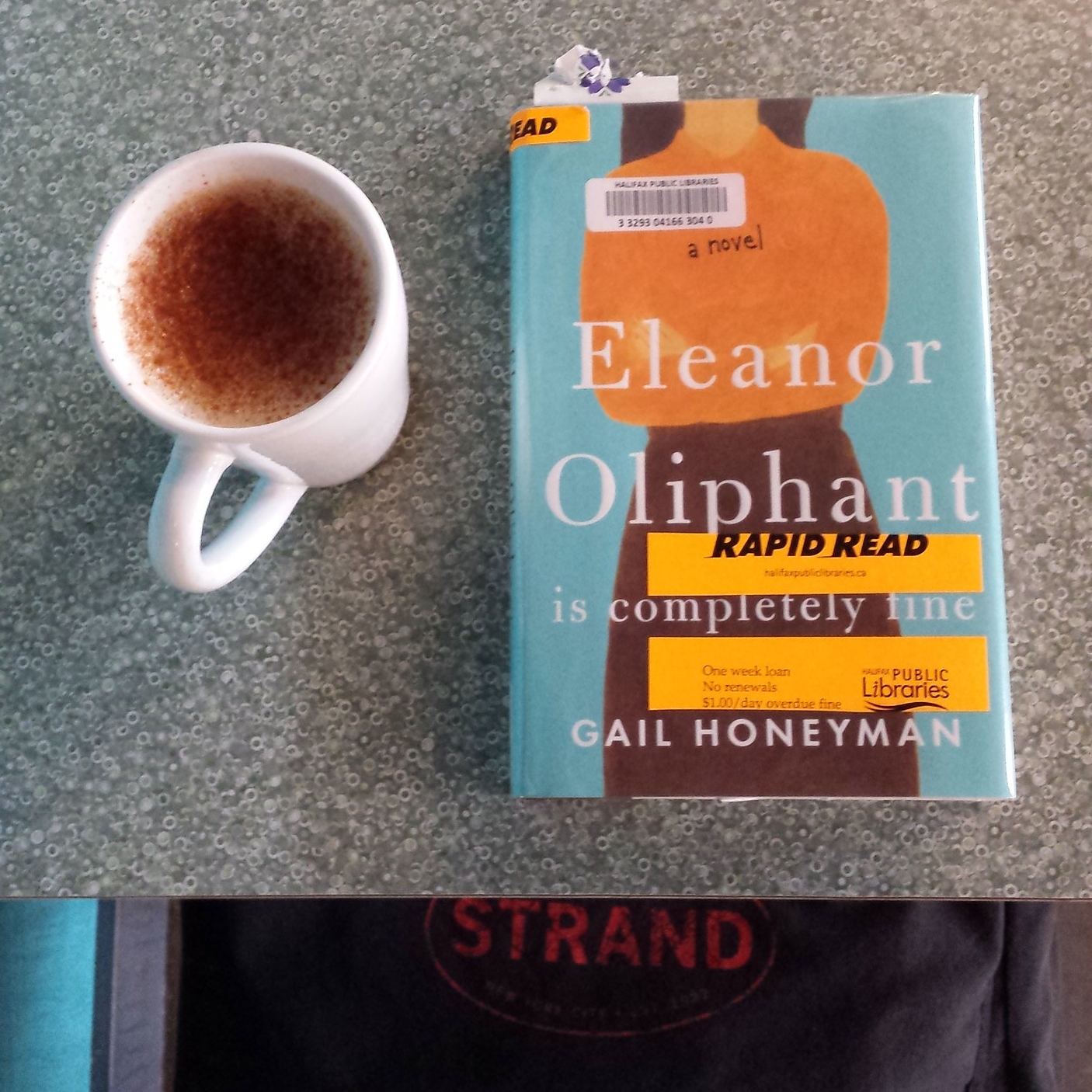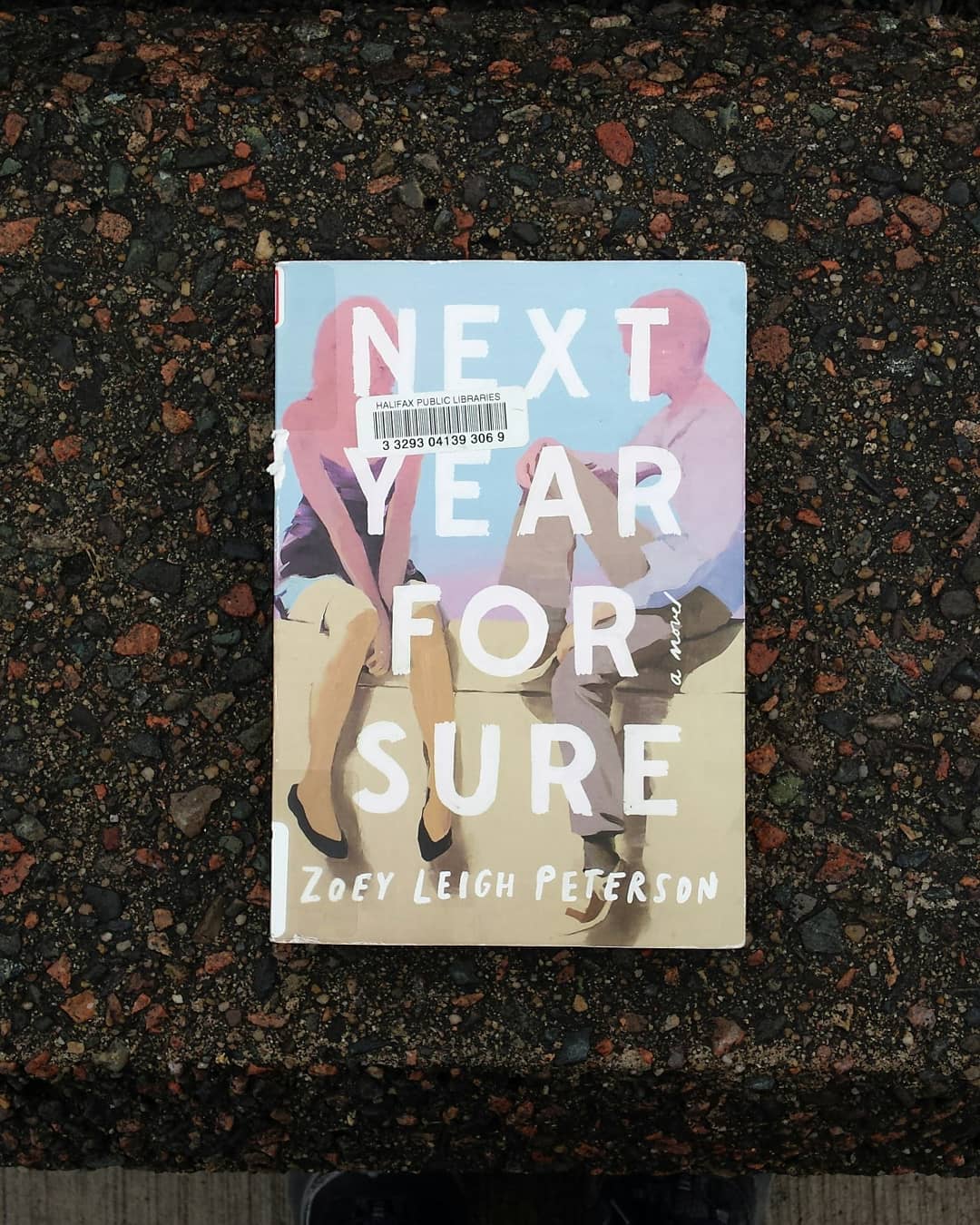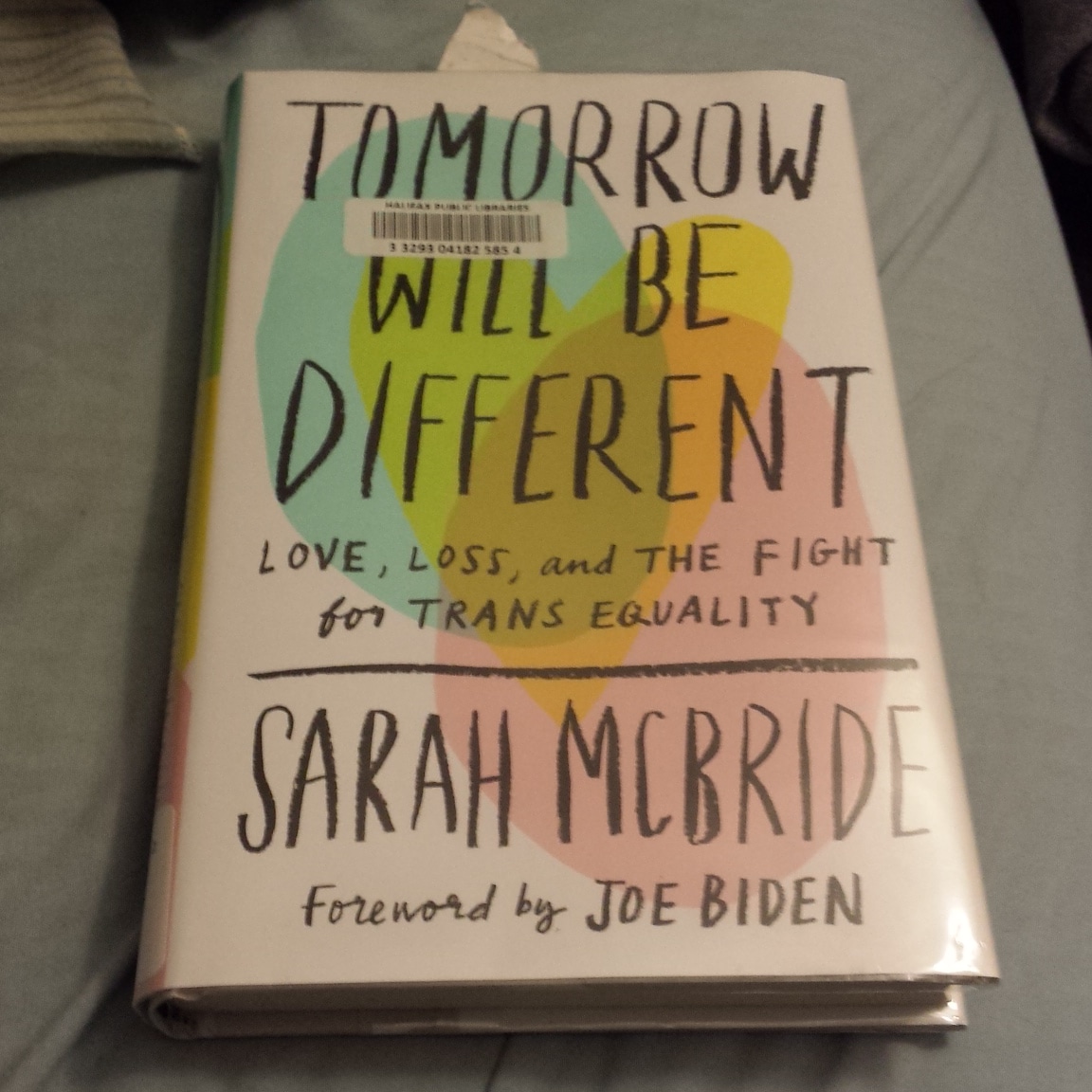Reading list: March/April 2018
The Naked Civil Servant - Quentin Crisp
This was an impulse buy one day when I was browsing the used bookstore in the same building where my old office was; I knew Crisp by reputation and this one of those books that I had heard about but never got around to reading. Crisp's story is one of himself, a not especially skilled or successful man drifting through life from situation to situation, job to job, though that could just be the picture his self-deprecating prose paints. In fact, I found he was perhaps a little too droll and affected, though that could also be a defense mechanism: as a "self-confessed" and "self-evident" gay man who came of age in interwar England, Crisp didn't fit in, nor did he try to; he asserts his own individuality, but at cost to his autonomy in other areas, whether in relation to his financial state or personal safety. This isn't a tale of a man overcoming adversity so much as acclimatizing to it, but while keeping his integrity and humour intact. While Crisp's story is sad and a document of the discrimination faced by LGBT people before the gay liberation movement of the late 60s helped change attitudes, The Naked Civil Servant is still a lively read due to his way with a sentence and observations about society that only an outsider could make.
Eleanor Oliphant is Completely Fine - Gail Honeyman
I saw this one show up on a few Instagram accounts I follow (one later listed it as one of her favourite books of 2017), and when I saw this on display in the "Rapid Reads" stand of my local library, I had to pick it up. Eleanor Oliphant is a socially awkward 30-year-old Glaswegian financial clerk who adheres to routine, and stays out of others' lives, choosing to spend her weekends numbing herself to sleep with two bottles of vodka. In trying to get through life as unscathed as possible, she is disconnected in many ways; from other people, from her painful childhood (which manifests itself primarily in a facial scar and a weekly phone call from her emotionally abusive Mummy), and from her own feelings. A crush on a local musician inspires her to shake her routine; an unexpected friendship with her office's new IT guy (forged further by their rescue of an old man) and the kindness that she encounters chips away at the walls Eleanor has maintained around herself. This catalyzes a greater change, but also exposes some of the deep wounds she has kept buried for so long.
This book was quite easy to get into and unfolded very nicely. I found I related quite a bit to the protagonist; while I haven't had the same kind of childhood trauma Eleanor endured, I've gone through depressive periods where I'd say I'm fine, even as I pull away and talk to as few people as possible for weeks at a time. I also sometimes see going out into the world as a situation where I need to be camouflaged as human. I was a little concerned that Honeyman was going to set Eleanor up for humiliation or to be a pitiable innocent, but she respects her as a full person, and has surprising reserves of self-awareness. She's lonely, but not self-pitying; she sees her isolation as a given. Her awkwardness comes from her tendency to process the unwritten social norms and cues intellectually instead of instinctively (which provides a lot of the book's humour), but whether that's due to a neurological disorder or just a byproduct of her isolation is purposefully left vague. Honeyman skillfully writes Eleanor in a way where once you spent enough time around Eleanor and got the little crumbs of her past, you want to learn more about what made her the way she is, and you end up hoping that she'll be more than just "fine" at the end of the book.
link to external review:
About a Book
When You Find Out The World Is Against You - Kelly Oxford
Oxford's second collection of essays features pieces on anxiety, family life, and many instances of embarrassing herself. I found it easy to connect to her point of view, as someone who perhaps a little more so because some of the mundane details of her childhood in Edmonton are familiar to a fellow Canadian of roughly the same age group (including a reference to Gordon Korman's I Want To Go Home! in the first essay). I did find it was a little too disjointed because of the essays' non-chronological presentation ("Oh, they're in Calgary at the start of this one"), but this was an enjoyable and quick read. The essays that made the biggest impressions were the most serious ones, the one about the death of a family friend, and the final essay, which is also the strongest piece in the book. Oxford uses that last essay to relate the story of her own experiences with sexual assault, and how her tweet with the hashtag #notokay in response to Donald Trump's Access Hollywood tape leak led to millions of women sharing their own stories. It's a powerful testament to the importance of discussing feelings, no matter how painful, and ultimately proved to be a fitting summary of the book's theme.
Trans: A Memoir - Juliet Jacques
I've been wanting to read more books about trans peoples' experiences lately; a few years ago I read a memoir by the sister of a trans woman (My Brother, My Sister by Molly Haskell) but found it frustratingly privileged and cis-centric, and figured out that I would seek out a trans voice next time. Juliet Jacques is an English freelance writer close to my age (she's about six months older than I am) and doesn't strictly write the standard "I knew I was in the wrong body" narrative. Aside from some backward glances to childhood, she focuses the search for her own identity against a lot of the universal experiences of young adulthood: her interests (one detail that sucked me in right away: her taste in music), trying to find belonging and community , getting through university and precarious employment, and dealing with her own depression (another subject that speaks to me directly). She also alternates her personal story with essays about trans history, representation and culture, and gives context as someone living in the United Kingdom with access to case through the NHS, and who had grown up in the shadow of Margaret Thatcher's Section 28 (which banned the "promotion" of homosexuality in schools) and trans-exclusionary radical feminism gaining a more prominent voice. All in all, her story clicked with me quite a bit, and the mixture of minutiae and the big picture, her own personal experience and larger theoretical discussions, gave me a better sense of what it was like to be trans, but more importantly, what that meant in the context of society.
Next Year For Sure - Zoey Leigh Peterson
This story about a couple open relationship was another one that I saw on a few book blogs that I read (see below for the links to the other reviews); the first review made it sound interesting, the second made it sound relateable, and the third solidified my desire to read it. As with Elinor Oliphant, it was an easy (and addicting) read that explores the idea of what people need to be happy, with an underpinning of loneliness throughout; unlike the other book, the loneliness doesn't come from isolation or trauma, but from the gradual shifts in relationships and selves and trying to square away your partner's needs with your own ability to meet that, and vice versa.
Laurie from Books Always In My Bag said this "punched her in the gut" with how much she related to this book. I felt the same thing; Peterson's clear prose put me right into the story's world (not explicitly named as Vancouver but clearly modeled on it) and helped me get to know the characters well, and by the end, it tore open a number of emotions. I related to different characters at different times, particularly the main couple, Chris and Kathryn. The excitement of infatuation and connection with a new person in your life, wanting to learn everything about who they are, and for them to be part of your everyday existence. Watching a friend grow further away from you. Wanting intimate connection but not being able to "crack open" for just anyone. All far too relatable for me, and a big reason why the feelings I got from this book lingered for quite a while afterward.
links to other reviews:
Books Always In My Bag
About a Book
Casey the Canadian Lesbrarian
Tomorrow Will Be Different: Love, Loss, and The Fight for Trans Equality - Sarah McBride
By the time Sarah McBride turned 26, she had served as student body president at American University, came out as a transgender woman in her school's newspaper, interned at The White House, advocated for gender identity protections and hate crimes legislation in her home state of Delaware, worked for the Center for American Progress, and made history by being the first openly transgender person to address a major party convention when she spoke at the 2016 Democratic National Convention. She had also lost her husband Andrew Cray to cancer two years before. McBride's memoir follows her experiences and emotions, through trying to reconcile the realization she was different with her ambitions and interest in politics; the work she did on behalf of other LGBT people, falling in love and moving in with Andy, his cancer diagnosis, treatment, and death; speaking at the DNC, and the results of the 2016 presidential election.
As a white, upper-income person surrounded by accepting family and friends, McBride is fully cognizant of her own privilege, and believes this gives her the responsibility to use her voice to fight for those who may not have that ability. She also has a skill at translating the abstract arguments of equality and justice into what that means on a personal level, and how legislation and protections for trans people affects real lives. She talks unflinchingly about the pain and fear of dealing with her partner's cancer and the blowback she received as a visible representative of the fight for trans equality. Some of the discussions of progress and hope under the Obama administration made me a little sad, especially in light of the current administration's almost gleeful embrace of policies that hurt LGBT people. Ultimately, though, this was a story of hope, the importance of values, the unexpected kindness of family and friends (which McBride calls "amazing grace"), and the progress that has already helped so many people continue the fight.





